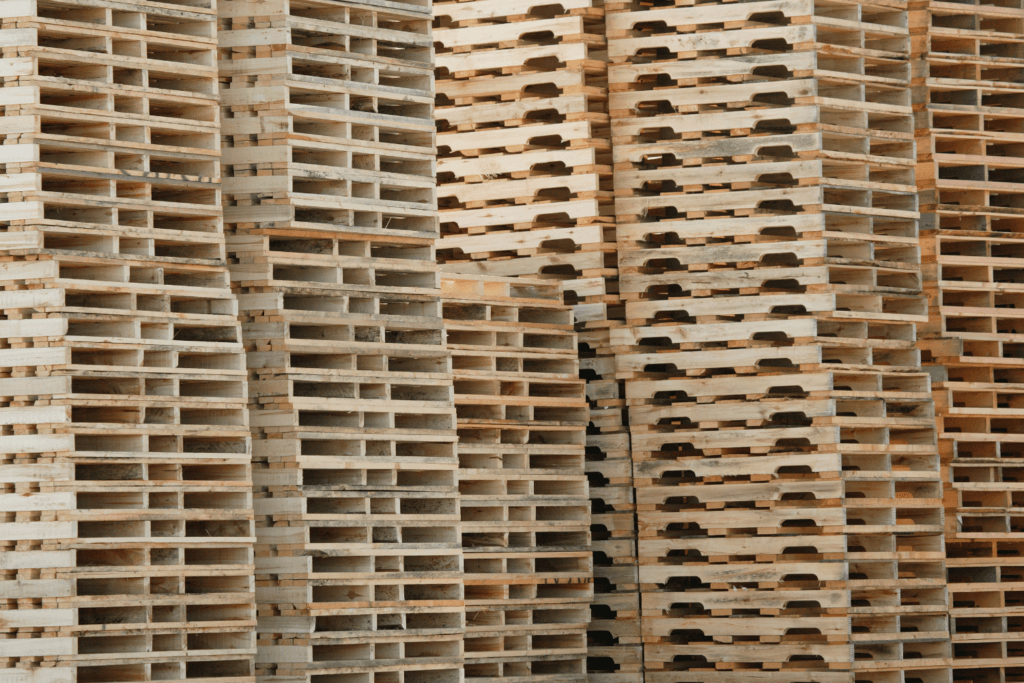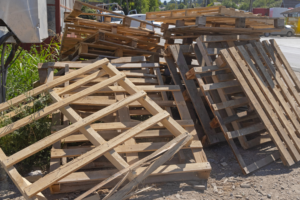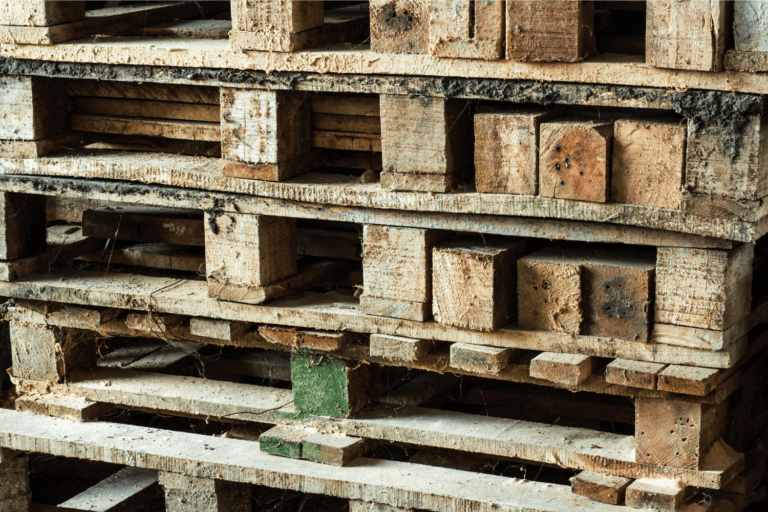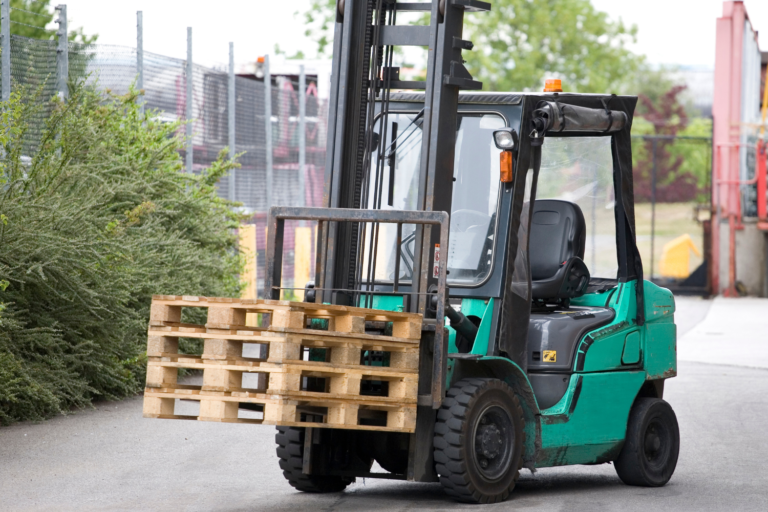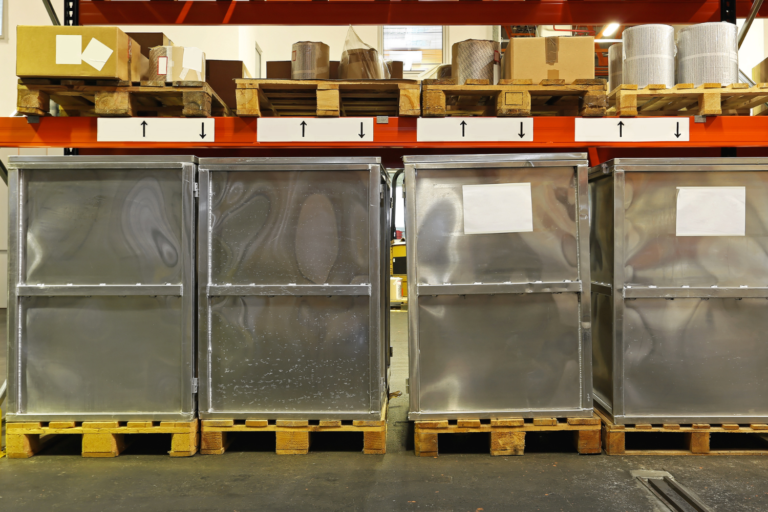You can make more informed decisions about pallet use and explore more sustainable alternatives if you know the environmental impacts of wooden pallets.
Wooden pallets have a relatively low environmental impact compared to plastic alternatives due to their biodegradability and the natural carbon-sequestering properties of wood.
However, their environmental benefits are maximized when sustainable forestry practices, repairability, and efficient recycling processes are prioritized.
8 Environmental Impacts of Wooden Pallets
The pallet industry is embracing sustainable solutions because they are becoming more aware of the environmental impacts of wooden pallets, which are listed below.
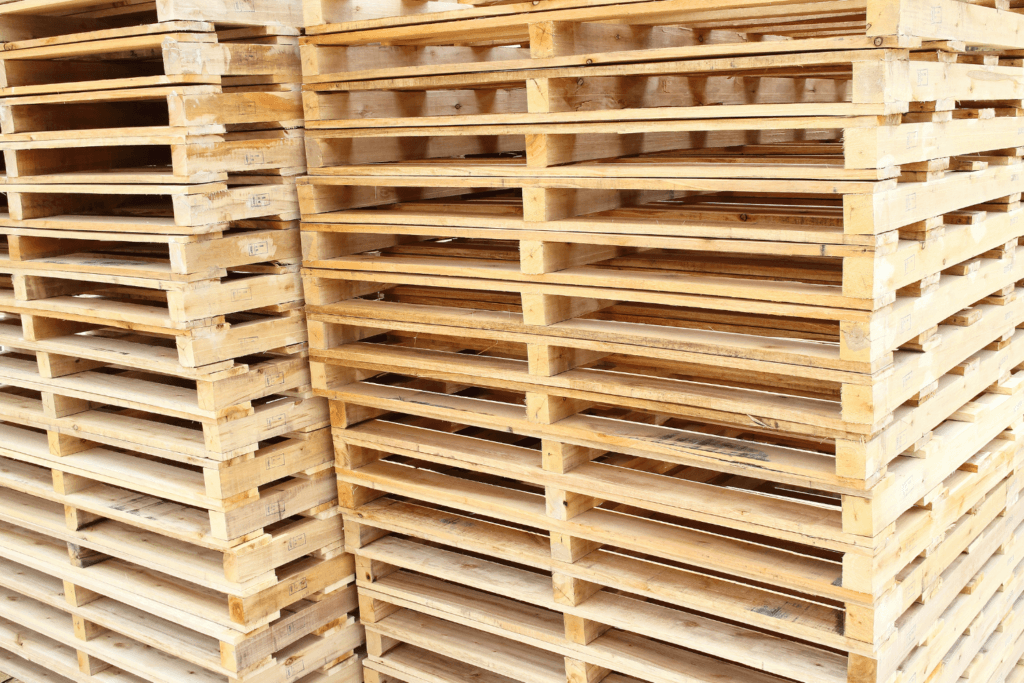
1. Harvesting Wood for Pallets Contributes to Deforestation
Harvesting wood for pallet production contributes significantly to deforestation, especially when wood is sourced from non-sustainable forests.
Forests are crucial for biodiversity and the climate, acting as carbon sinks that absorb carbon dioxide and provide habitats for countless species.
When they are cleared for lumber, these ecosystems are disrupted, leading to habitat loss and the release of stored carbon back into the atmosphere.
Deforestation is concerning if it takes place in areas without sustainable management practices, where there is no commitment to replanting or maintaining forest health.
2. Cutting, Transporting, and Processing Wood Releases Carbon Dioxide
The process of cutting, transporting, and processing wood for pallets has a considerable carbon footprint.
Each stage of this production cycle requires energy, from the machinery used to cut down trees to the trucks that transport logs to sawmills.
These activities release carbon dioxide, contributing to greenhouse gas emissions and climate change.
While wood itself can sequester carbon, the energy-intensive processes associated with manufacturing pallets reduce this environmental benefit.
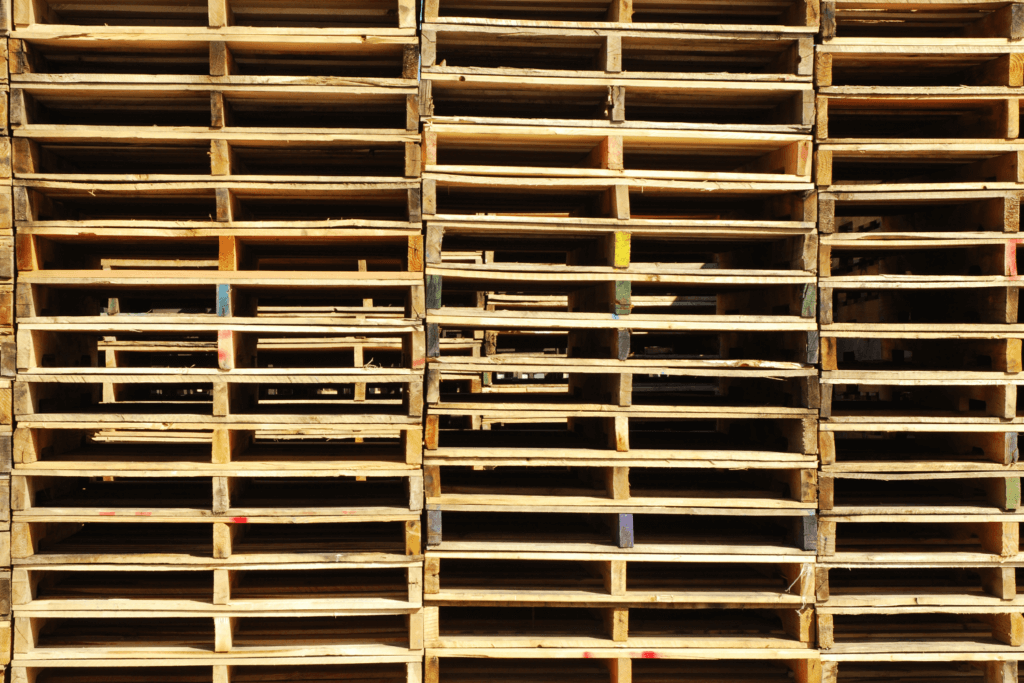
3. Growing Trees for Wooden Pallets Requires Significant Amounts of Water
Growing trees for wooden pallet production demands significant water resources, a factor that can strain local water supplies, especially in regions where water is already scarce.
Forests and plantations need large amounts of water, and deforestation often reduces soil’s water retention, leading to higher water consumption in the regrowth cycle.
In areas where trees are farmed for pallets, water-intensive agriculture impacts not only forest ecosystems but also communities that rely on the same water sources.
4. Wooden Pallets Are Often Treated with Chemicals for Pest Control
Wooden pallets are often treated with chemicals to prevent pest infestations that could spread through international shipping.
These chemicals, including fumigants and preservatives, help protect wood from termites and fungi but can pose environmental and health risks.
Methyl bromide, for example, was once widely used in pest control but was found to be extremely harmful to the ozone layer.
While it is now largely banned, other chemicals continue to be used, some of which can leach into soil and water when pallets are discarded.
5. Wooden Pallets Often End Up in Landfills at the End of Their Lifecycle
When wooden pallets reach the end of their lifecycle, many are discarded in landfills, where they contribute to waste accumulation.
Although wood is biodegradable, its breakdown in landfills is slow, and the anaerobic conditions can lead to methane emissions, a potent greenhouse gas.
While some pallets are recycled or repurposed, a significant portion still ends up in landfills due to the logistics and costs associated with recycling.
Without robust recycling programs, discarded pallets contribute to environmental degradation, taking up valuable landfill space and releasing emissions as they slowly decompose.
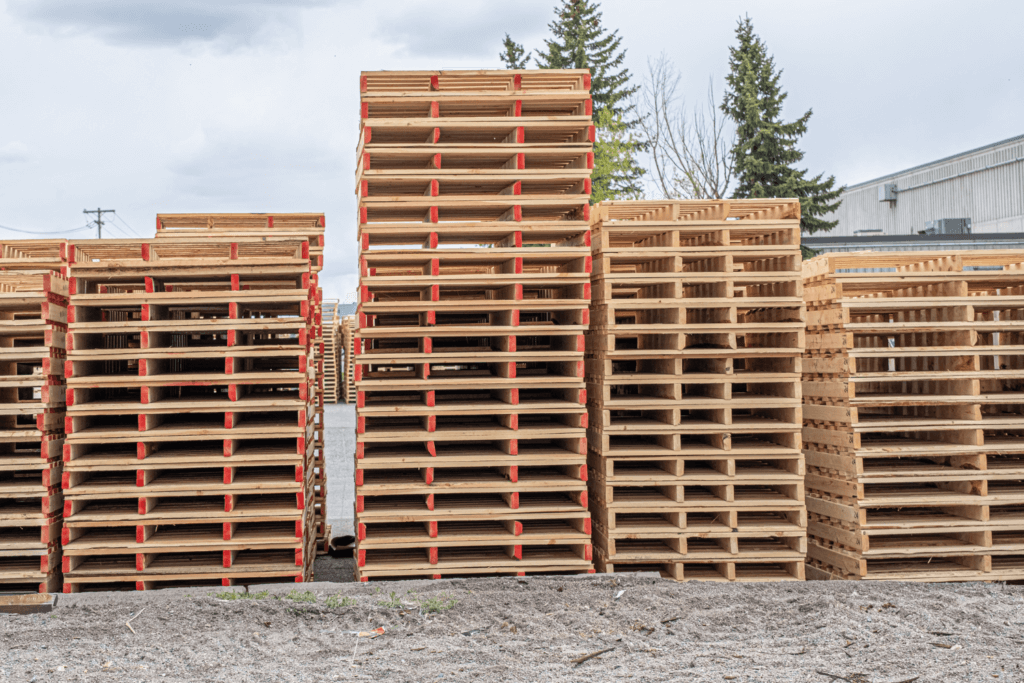
6. Continuous Harvesting of Wood for Pallets Depletes Natural Resources
The continuous harvesting of wood for pallet production depletes natural resources, especially when demand increases and sustainable practices are not prioritized.
Trees take decades to mature, and when forests are logged faster than they can regenerate, it leads to resource depletion.
This overharvesting can also lead to soil erosion and reduce biodiversity, as forests struggle to recover.
7. Transporting Wooden Pallets Increases Fuel Consumption and Emissions
The transportation of wooden pallets across various regions and countries requires fuel, often diesel, which contributes to greenhouse gas emissions and environmental pollution.
Local sourcing and energy-efficient transportation methods can mitigate this impact, but the overall fuel dependency remains a challenge in reducing the environmental impact of wooden pallets.
8. Wooden Pallets Can Harbor Pests and Diseases That Can Spread to New Areas and Impact Local Ecosystems
Wooden pallets can harbor pests and diseases, which can spread to new areas and disrupt local ecosystems.
The risk of pest transmission is particularly high in international shipping, where pallets can carry invasive species that are harmful to trees.
If pests survive on untreated or poorly treated pallets, they may establish themselves in new environments, where they can outcompete native species and cause damage to local ecosystems and agriculture.
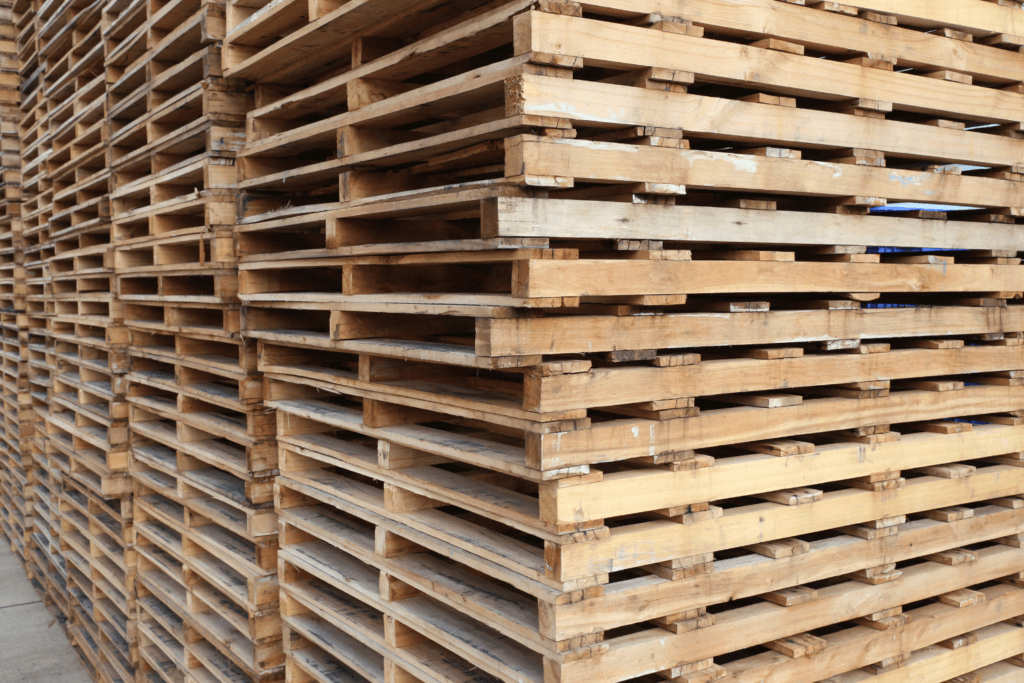
Conclusion
Unsustainable logging practices can lead to habitat loss, threatening species and ecosystems.
However, manufacturers that adhere to sustainable forestry standards work to minimize habitat disruption by preserving natural ecosystems and promoting biodiversity.
They ensure that the wood for pallets is sourced in a way that prioritizes environmental balance.
If you need wooden pallets from eco-friendly pallet manufacturers, check out our pallet products.
Chesapeake Pallets has been helping companies across the United States level up their logistics, one pallet at a time.
For inquiries, email info@chesapeakepallets.com or request a quote below!

